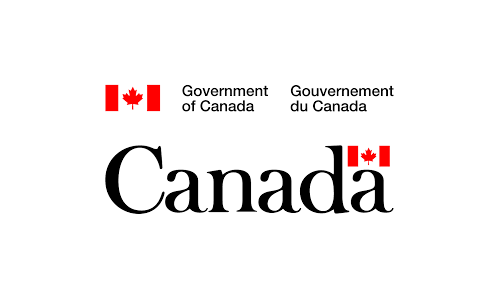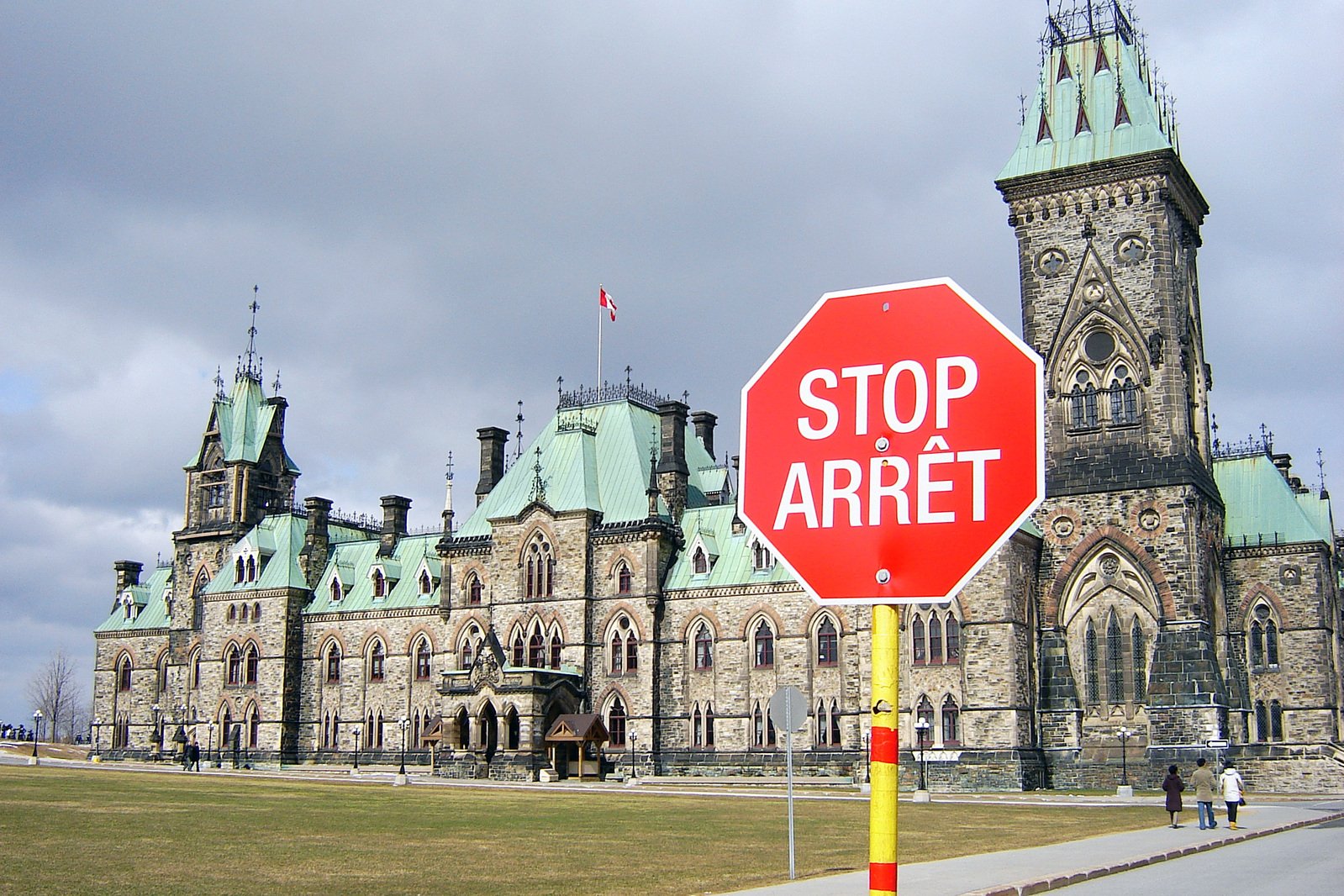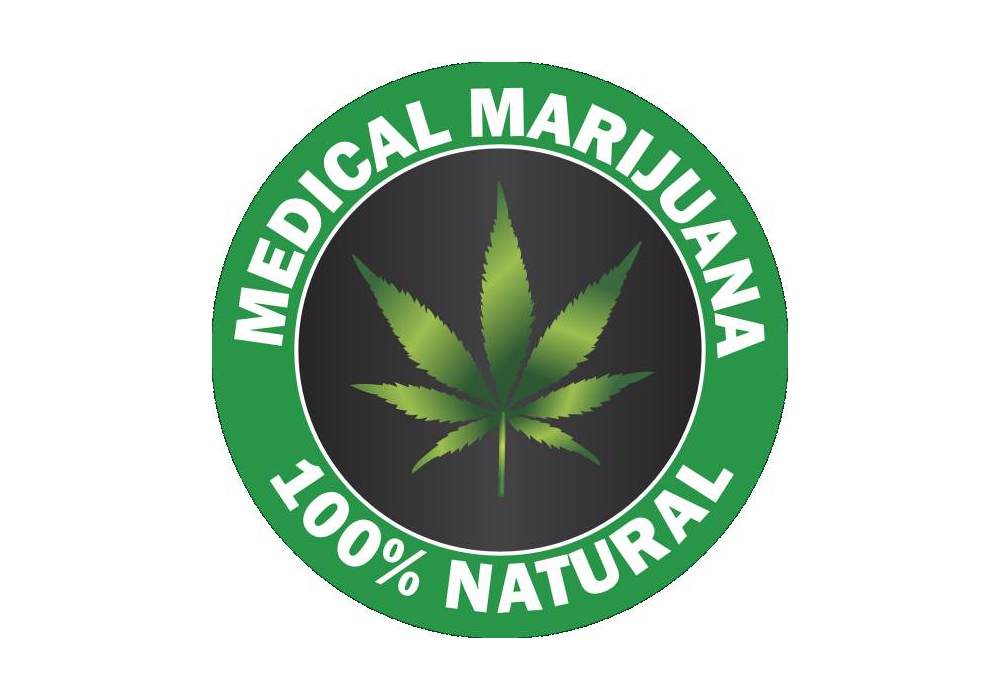FREE Seed-to-sale Software Buyer's Guide
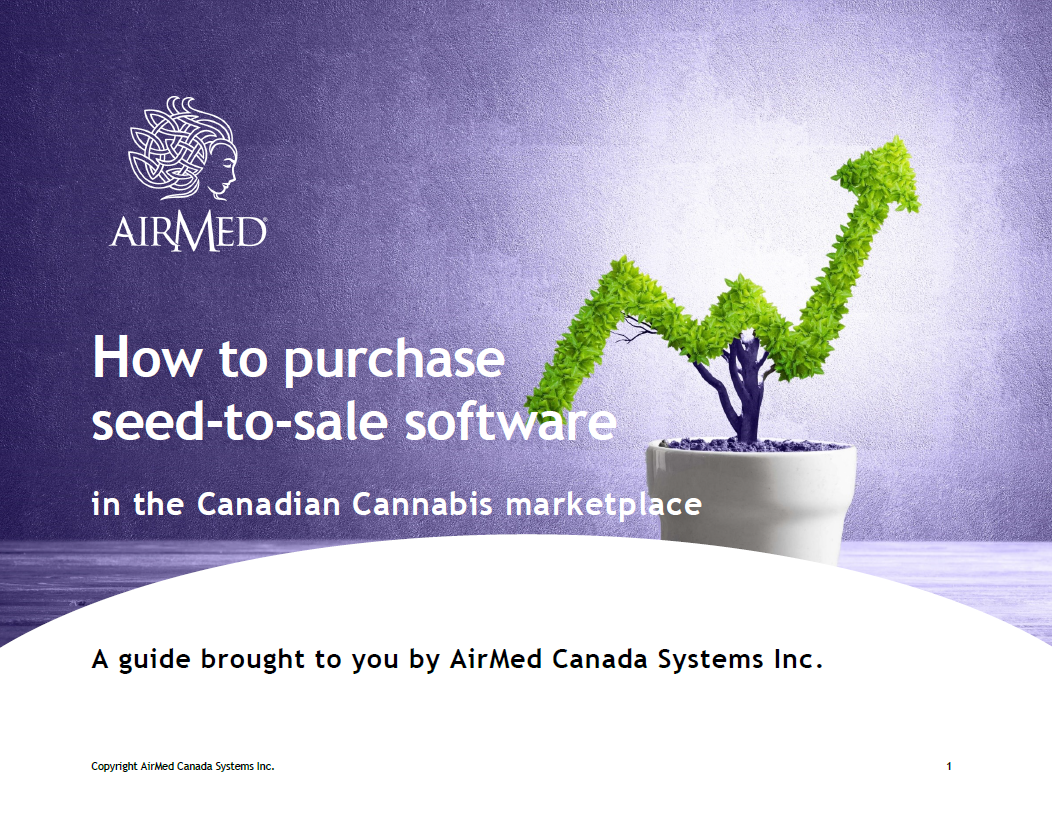
Record keeping is an essential part of Health Canada’s compliance regulations. From the advent of legal medical marijuana in Canada, legal producers of cannabis have been required to track every seed, rooted plant, gram of waste material, final dried product, as well as interactions with customers and more. Due to the sheer volume of information, an electronic record-keeping system is the only practical way to manage the process. The software industry has responded to this need by creating seed-to-sale management software systems designed to help producers track their operations and report to Health Canada to meet compliance.
To help you through the process of purchasing seed-to-sale software in the Canadian Cannabis marketplace, we’ve produced a 20-page guide that answers the following questions:
- What is a seed-to-sale software solution and why do I need one?
- How do I choose one software platform over another?
- What should I be looking for in the software?
- How does the software fit into my business?
- How is my data stored and secured?
- What happens if regulations change?
To download this guide courtesy of AirMed, please visit the following page and complete the form. Once you submit the form, you’ll be able to download the guide.
What We Heard Report

The federal government released a report that summarizes what a “five-person expert panel has heard over the past year as it engaged with almost 500 stakeholders in nearly 90 meetings across Canada.”
The report, titled “What We Heard,” describes the scope of the engagement and summarizes the responses in several categories including: public health, impact on young persons, impact on First Nations and more.
Read about the expert panel and review here: https://www.canada.ca/en/health-canada/services/drugs-medication/cannabis/laws-regulations/cannabis-act-legislative-review/expert-panel/legislative-review-cannabis-act-report.html
Read the report here: https://www.canada.ca/en/health-canada/services/drugs-medication/cannabis/laws-regulations/cannabis-act-legislative-review/expert-panel/legislative-review-cannabis-act-report.html
Stratcann summarized the report in an article published on their website on October 10, 2023, the same day the report was released.
Read the Stratcann article here: https://stratcann.com/other/canada-releases-what-we-heard-report-on-the-cannabis-act-review/
Global News followed up the release of the report with an in-depth article on the state of the cannabis industry in Canada. In the feature published on October 16, 2023, Global News offers commentary by several experts including George Smitherman, president and chief executive of the Cannabis Council of Canada.
Read the Global News article here: https://globalnews.ca/news/10027112/cannabis-act-review-canada/
Complete C3 Excise Tax Survey of Licence Holders before Sep 1
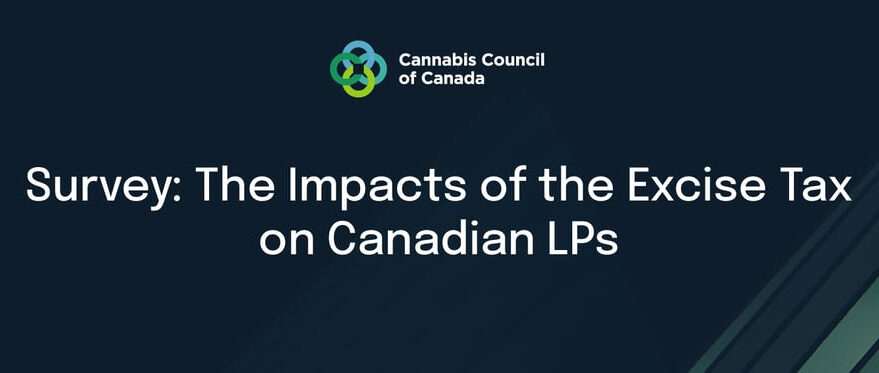
Cannabis Council of Canada (C3) is conducting a study on the Canadian cannabis excise tax framework and are looking for input from licensed producers and processors from across the country.
Are you a Health Canada Licence Holder? Please take 10 minutes to fill out an anonymous survey (or forward to your CFO) before September 1st and join C3 August 31st for a virtual discussion with other leaders in the cannabis sector.
“Your input will be invaluable in shaping our conversations with government decision-makers at an upcoming lobby day and in advance of the Fall Economic Statement. All responses are anonymous and will be reported in aggregate.”
Not a licence holder? C3 encourages you to share this survey link with LPs whose operations might be impacted by a change to the excise tax framework.
Use the link below to complete the survey:
https://qfreeaccountssjc1.az1.qualtrics.com/jfe/form/SV_25f1c7xf8k9fhoqOr visit C3 for more information:
https://cannabis-council.ca/
Exporting Cannabis to the EU
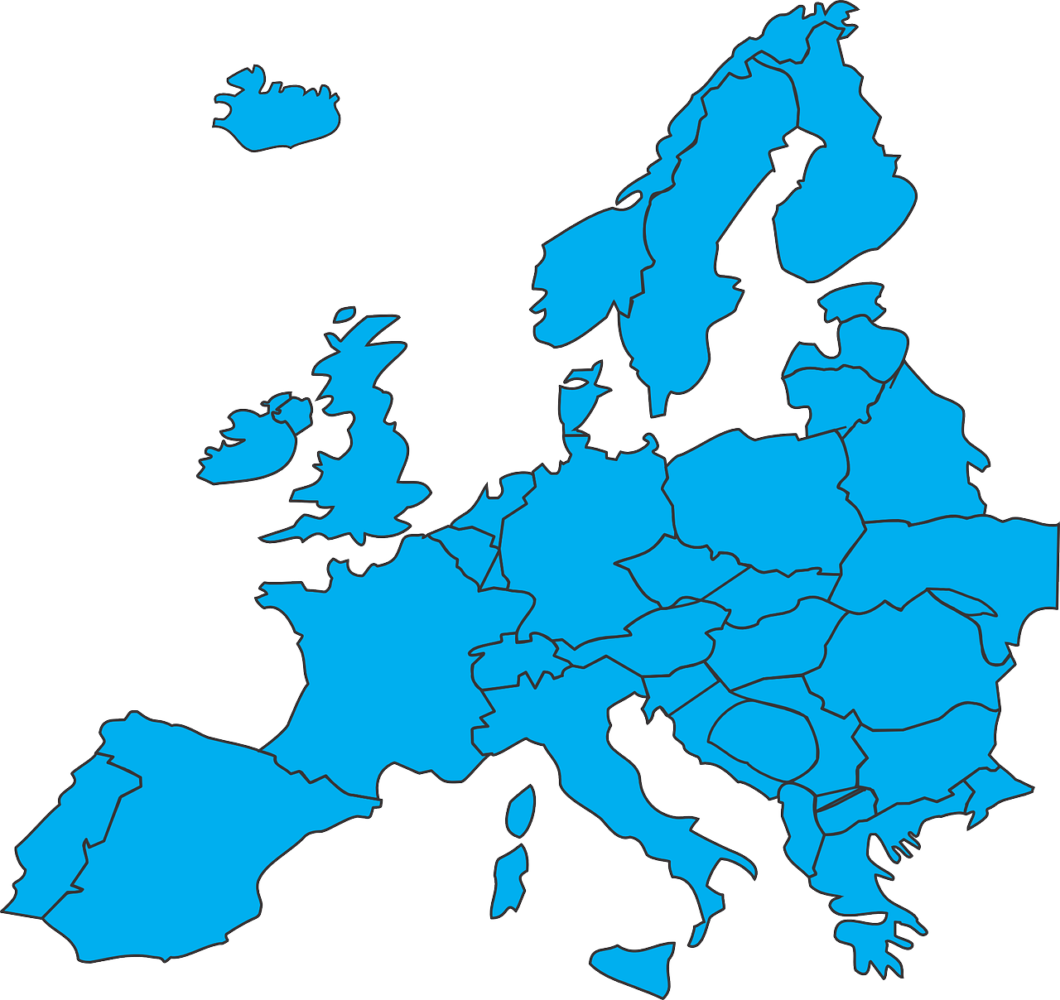
In a previous post, we discussed how some Canadian producers are selling excess inventory to export markets, including Europe.
In “The Europe Medical Cannabis Market,” Market Data Forecast reports, “The medical cannabis market in Europe is expected to grow from USD 4.96 billion in 2022 to USD 13.37 billion by 2027, growing at a CAGR [compound annual growth rate] of CAGR 21.96% from 2022 to 2027.”
Based on that report, Europe appears to be a significant marketplace for cannabis. But to sell into that market, the exporter must meet the region’s standards. In the case of Europe, those standards include the European Union’s Good Manufacturing Practices, referred to as EU GMP.
In their article, “A Look at Canadian Cannabis Exports,” published in 2021, The Business of Cannabis reported one reason why exports jumped in 2020. “In Canada, more cultivators gained the European Union’s Good Manufacturing Practices (EU GMP) certification, allowing them to export to that continent. More than a dozen Canadian LPs now have EU GMP certified facilities.”
Meeting EU GMP standards is critical for exporting into the European marketplace. But what is EU GMP and how does it differ from the standards Canadian companies already meet?
Health Canada requires that Canadian licensed producers comply with Good Production Practices or GPP standards. If you are a licensed producer in Canada, you are already familiar with GPP. If not, these standards are explained on the Health Canada website.
Essentially, GPP requires that cannabis businesses have appropriate procedures for all activities related to producing a product that is safe for public consumption. GPP mandates that systems be in place to ensure quality and traceability.
Good Manufacturing Practices, GMP, takes GPP further including requiring more stringent testing.
The Foundation of Cannabis Unified Standards (FOCUS) states, “GMP is the proactive part of quality assurance. It is designed to minimize the risks involved in all steps of the manufacturing process. A basic tenant of GMP is that quality cannot be tested into a product. It must be built into each batch of product during all stages of the manufacturing process.”
Originally designed for pharmaceutical products, GMP can be applied to any production process and is a requirement for those wishing to market medical cannabis in Europe.
The EU GMP standards are complex, and the information can be difficult to navigate, especially how it applies to cannabis.
But the Canadian government has published guidelines designed to help manufacturers meet GMP standards. Their guidance document has been written “with a view to harmonize with GMP standards from: the World Health Organization (WHO); the Pharmaceutical Inspection Cooperation/Scheme (PIC/S); the International Council on Harmonisation (ICH); the International Cooperation on Harmonisation of Technical Requirements for Registration of Veterinary Medicinal Products (VICH); other regulatory agencies in other countries.”
While the EU is not mentioned specifically, these Canadian standards are a good starting point for cannabis companies considering exporting into other markets. These guidelines will help producers understand what is required and can be used as a stepping stone toward EU GMP certification.
According to the media, the EU standards are stringent, and certification can be time consuming and costly. But with a market as large as Europe, Canadian companies are in a position to benefit from the opportunities that an EU GMP certificate can offer.
To access the resources quoted here, use the following links:
- https://businessofcannabis.com/a-look-at-canadian-cannabis-exports/
- https://www.marketdataforecast.com/market-reports/europe-medical-cannabis-market
- https://www.focusstandards.org/gmp-cannabis-industry/
- https://www.gmp-compliance.org/guidelines/gmp-guidelines
- https://www.canada.ca/en/health-canada/services/drugs-health-products/compliance-enforcement/good-manufacturing-practices/guidance-documents/gmp-guidelines-0001/document.html
Cannabis Council Packaging Webinar Apr 28
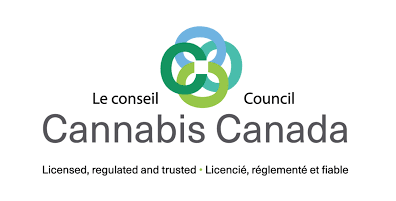
The Cannabis Council of Canada (C3) is hosting a webinar April 28 on Health Canada Packaging and Labelling Requirements for Cannabis Products and Other Regulatory Issues.
Health Canada is “seeking feedback on potential amendments to the Cannabis Regulations (CR) for regulatory burden reduction while still addressing public health and public safety risks”. C3 is hosting a series of insightful and engaging listening sessions designed to address the consultation focus areas.
These sessions will provide a unique opportunity for professionals in the cannabis industry to come together, share insights, and collaborate on a unified response to the proposed regulatory changes.
On April 28, 2023 at 1 pm ET/10 am PT, C3 invites you to join series host Ika Washington (Diversity Talks) and a panel of diverse industry leaders as they explore issues related to packaging and labelling requirements for cannabis products. This session will also explore options to press for change in other regulatory areas. Join in and explore the possibilities together!
Ika will be joined by panelists, Megan McCrae (Organigram, C3 Board Member), Shauna Levy (Madge and Mercer Brand) and Serena Somani (4K Cannabis Retail.)
For more information visit: https://cannabis-council.ca/hcconsultation
Health Canada Seeks Your Feedback from March 25 to May 24, 2023

In relation to a consultation on potential amendments to the Cannabis Regulations, Health Canada is seeking feedback and comments on potential amendments to the Cannabis Regulations.
The aims of the consultation include clarifying existing requirements, eliminating regulation inefficiencies and duplications and reducing administrative and regulatory burdens, and Health Canada is seeking input from:
- cannabis industry stakeholders
- public health stakeholders, non-governmental organizations
- researchers and research or academic institutions
- First Nations, Inuit and Métis partners and organizations
- law enforcement
- provincial, territorial and municipal governments
For more information including how you can provide feedback until May 24, 2023, visit:
https://www.canada.ca/en/health-canada/programs/consultation-potential-amendments-cannabis-regulations.html
What to Expect from the Cannabis Act Review

Since the announcement of the Cannabis Act review, people are speaking out about what they hope to see from reviewers.
The review was initially planned to begin in 2021 and look at the public health implications of the legalization of cannabis in Canada.
The CBC reported that the government delayed the start of the review to expand the scope. “The review mandate has been expanded to include an examination of the social and environmental effects of the Cannabis Act, the impact of legalization and regulation of medical cannabis and the impact on racialized communities and women.”
Read more here: https://www.cbc.ca/news/politics/public-health-cannabis-mandated-eview-1.6591442
An article in The Globe & Mail stated that “For George Smitherman, the chief executive officer of the Cannabis Council of Canada, the national industry association, the announcement comes at a critical time. Companies continue to face pressure from the illicit market, as well as excise taxes, provincial distributor markups and regulatory fees.”
Read more here: https://www.theglobeandmail.com/business/article-health-canada-cannabis-act-review/
The Toronto Star notes that the pot sector wants packaging changes and financial relief from the review. “The industry is frustrated the review’s launch arrived a year later than mandated but is still hoping it can result in enough tweaked restrictions to make cannabis distribution easier, draw in new customers and prevent more staffing and facility cuts.”
Read more here: https://www.thestar.com/news/cannabis/2022/09/22/pot-sector-wants-packaging-changes-financial-relief-from-cannabis-act-review.html
The review is expected to be completed in 18 months, and government officials say that it will consider health issues as well as financial, tax, regulatory and criminal-justice matters.
Government of Canada Launches Cannabis Act Review

On September 22, 2022, the Government of Canada announced the launch of a legislative review of the Cannabis Act.
The announcement stated, “Parliamentarians recognized the need for an early assessment of the Government’s new approach to cannabis control, and included a provision requiring a review in the Act. The review will help ensure that the Act adapts to the current situation and continues to meet Canadians needs and expectations.”
An independent panel of experts will lead what is being called a credible and inclusive review. “The Panel will provide independent, expert advice to both Ministers on progress made towards achieving the Act’s objectives, and will help identify priority areas for improving the functioning of the legislation.”
In conjunction with the legislative review, an online engagement process has been launched.
All Canadians are invited to read Taking Stock of Progress: Cannabis Legalization and Regulation in Canada.
Canadians are also encouraged to share their views via the online questionnaire or through written feedback until November 21, 2022.
Take the survey here: https://ca1se.voxco.com/SE/?st=3KoT2Xgsv4uHJF2%2F0i%2F7oo5IS3ATejUCjIjdJ4lUsME%3D&lang=en
You can also read the original announcement on the Government of Canada website.
Health Canada authorizing dried and fresh cannabis sales to licensees

Beginning April 19, 2022, existing holders of micro and standard cannabis licenses in Canada will be granted authorization to sell dried and fresh cannabis products. A notification went out to existing license holders at the end of March that this regulatory change will allow them to sell dried or fresh cannabis products to provincial wholesalers. Prior to this, a sales amendment was required to sell those products.
“Initial licensing came with sales conditions, and the amendment application process could take months,” said Justin Hearn, president and CEO of AirMed Canada Systems, “These changes are designed to reduce the regulatory burden for licensees and help them get their products to market more quickly. We expect this to be especially significant for our micro clients who want to carry out farmgate sales.”
Health Canada will automatically reissue licenses with amended conditions over the next three months. Those who had already applied for an amendment for dried and fresh cannabis sales will be prioritized in the process. Following the regulations, licensees will still need to submit a Notification of New Cannabis Product (NNCP) 60 days in advance of the sale of any new product.
This modification to the license program has been implemented as part of Health Canada’s efforts to improve the cannabis licensing process. According to the notification, “The decision is based on the lower risk associated with producing dried and fresh cannabis products.”
Note that the change applies only to dried and fresh cannabis products. Other products, such as edibles and vape cartridges, are not included in the sales amendment. Licensees planning to sell those products must still apply to Health Canada for a sales amendment.
“While these changes do not apply to the sale of extracts and edibles, it is certainly a step in the right direction,” said Hearn. “We expect edibles and extracts to play a significant role in cannabis sales in the future and have already added support in AirMed for these classes of cannabis.”
For more information about cannabis in Canada, visit: https://www.canada.ca/en/services/health/campaigns/cannabis/industry.html
For information on how AirMed manages the sale of cannabis products for licensees, visit: https://airmedcloud.com/software/#sell
Quality Management and AirMed
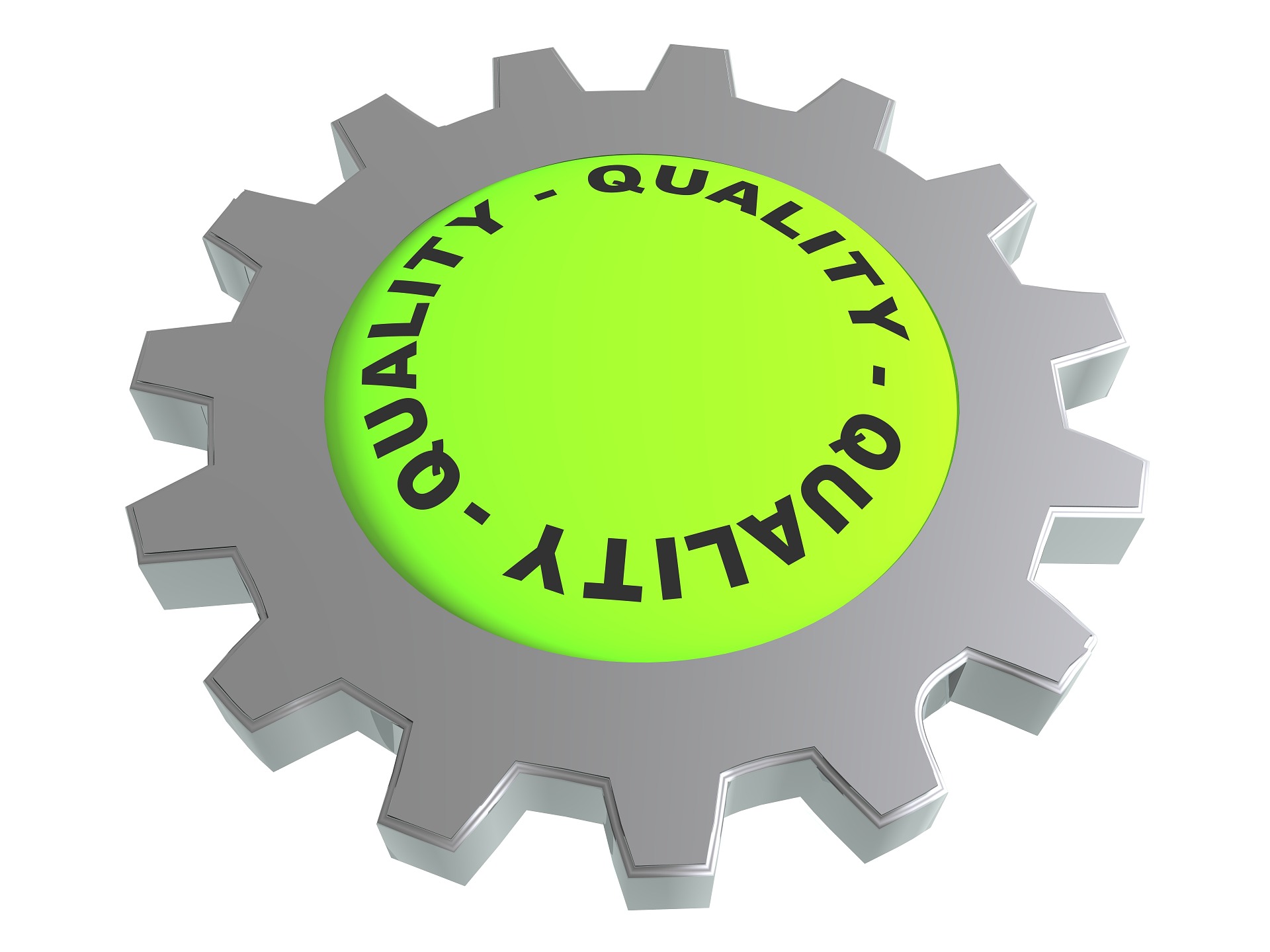
Constantly innovating to help our clients, we have a host of features in development for our seed-to-sale software. One of the most significant improvements currently in development for AirMed is built-in Quality Management.
A Quality Management System (QMS) can help your organization mitigate regulatory risk by providing the tools you need to meet the requirements and standards for Health Canada’s Good Production Practices. But risk reduction is not the only benefit of QMS. You can also improve efficiency, provide consistent control over processes, and much more. As a result, we’re building a range of QMS features into AirMed including the following.
- Escalation and Tracking: Escalation and tracking will be available for use in any area of the facility such as plant growth incidents, extraction incidents, order and fulfillment incidents.
- Vendor Approval Process: A multi-level approval process will be supported for new vendors who supply products.
- Enhanced Received Product Management: New features are being added for received product quarantine, testing and release for use. The new functionality will support having certain received products undergo QA to ensure they match specifications. QA results can be uploaded to support this workflow.
- SOP Management: Standard Operating Procedures (SOP) are critical to QMS, and we will be adding SOP management for current and historical SOPs with auto-versioning to track changes in procedures.
- Electronic Signatures: Electronic signatures will be available for workflows such as destruction, sanitation, and processes that need approval from a responsible person in charge.
- Case Management for Plant Issues: With new support for both SMS and MMS notifications, a grow tech concerned about a plant will be able to send a photo to the head grower for instant review.
We’re working hard to meet shifting customer needs and market demands in the Canadian cannabis industry, turning your feedback into important product advancements. AirMed seed-to-sale business solutions go beyond compliance to help licensed producers cultivate success.
If you’d like to read about Canada’s Good Production Practices for Cannabis, visit https://www.canada.ca/en/health-canada/services/cannabis-regulations-licensed-producers/good-production-practices-guide.html
For more information about AirMed visit our software page.
If you have specific questions or would like a free demo of AirMed, please contact an AirMed sales representative by filling out one of our contact forms or calling 1-877-313-2442.
What happens with my seed-to-sale software if regulations change?

The market for cannabis is evolving. Health Canada manages oversight and sets the compliance requirements for legal production of cannabis in Canada. In the last five years, these requirements have changed multiple times and are set to change again with the legalization of cannabis for recreational use on October 17, 2018. A responsible software vendor will ensure that all its clients have the information they need to comply with the latest Health Canada requirements.
With SaaS or cloud-based seed-to-sale platforms, software updates are usually global to all clients/users. On-site implementations sometimes require individual upgrades performed by the client in conjunction with the vendor. Often this means scheduling both parties, which can delay access to the latest features and functionality. If there are modifications for specific clients, this can mean a complicated upgrade path with the risk of unintended software bugs and related down time or additional costs to re-customize.
As you choose your seed-to-sale software solution, be sure to consider the future of compliance and those implications on your business. No one knows for sure what the future holds, but history has shown that the only true constant is change.
For more information about the Cannabis Act in Canada visit: What you need to know about cannabis – Canada.ca
For more information, download our software buyer’s guide here: How to Purchase Seed-to-Sale Software
Legalization of Cannabis in Canada

As of October 17, 2018, cannabis is legal in Canada for both recreational and medical use. If you want to know exactly what that means for you, there are plenty of articles available online to help you. Following are a few from Canada and around the world:
CBC News: Cannabis is legal in Canada — here’s what you need to know
CNN: Canada just legalized recreational pot. Here’s what you need to know
Pot 101: Everything you need to know about marijuana legalization
New York Times: Canada is Legalizing Marijuana. Here Are Some Questions, Answered.
Prohibition 2.0 Begins October 17, 2018
ACMPR and the licensed cannabis producer

What does ACMPR cover?
For the cannabis industry in Canada, the most critical compliance implications are those covered by the Access to Cannabis for Medical Purposes Regulations. This legislation covers every aspect of marijuana production and sale. Overseen by Health Canada, these regulations must be adhered to at every stage of cannabis business from propagation through to sale. As of August 24, 2016, the Access to Cannabis for Medical Purposes Regulations (ACMPR) replaced the previous Marihuana for Medical Purposes Regulations (MMPR).
ACMPR is designed to provide an immediate solution for Canada to meet legal requirements. But Health Canada is continuously evaluating how a system of medical access to cannabis should function alongside the government’s commitment to legalize, strictly regulate and restrict access to cannabis. As a result, laws and regulations may change.
Currently, the legislation contains four parts.
Part 1 sets out a framework for commercial production by licensed producers responsible for the production and distribution of quality-controlled fresh or dried marijuana or cannabis oil or starting materials (i.e., seeds and plants) in secure and sanitary conditions.
Part 2 sets out provisions for individuals to produce a limited amount of cannabis for their own medical purposes or to designate someone to produce it for them.
Parts 3 and 4 include transitional provisions, consequential amendments to other regulations, and provisions repealing the MMPR.
All those wishing to produce cannabis in Canada must apply to Health Canada to become a licensed producer under the ACMPR legislation, and all licensed producers MUST comply with the ACMPR regulations.
What are the specific ACMPR regulations that affect software and record keeping?
The ACMPR has many regulations that apply to the medical marijuana industry in Canada as a whole. Not all of those have implications for record keeping or to the method (software) used for that record keeping. (For links to the different websites that cover ACMP download our Seed-to-Sale Software Buyer’s Guide.)
How do I meet ACMPR compliance?
To be ACMPR compliant, your organization must have ways of meeting all of the regulations listed above.
Many of the regulations listed above apply to processes, so you’ll need to be utilizing best practices and documented standard operating procedures. You’ll also need to be able to prove to Health Canada that you have used best practices. That’s where seed-to-sale software comes in. Your cannabis business management software should provide you with the means to meet compliance when it comes to record keeping and reporting.
To support you in this process, a viable software vendor will supply you with a document that outlines exactly how the system they provide meets those requirements.
For a free demo to learn how AirMed meets these and other regulations, please email info @ airmed.ca.
Medical Marihuana in Canada: Where We Are Today
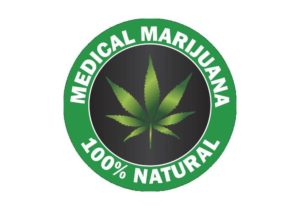
The legal use of marihuana for medical purposes in Canada has a long and complex history. Cannabis has been on the Schedule of the Opium and Narcotic Control Act since 1923. While proponents lobbied and commissions reviewed many times over several decades around the world, nothing significant happened with the legalization of cannabis until 1976 when the Netherlands effectively decriminalized the plant’s use. This set off a wave of activity that included one U.S. state recognizing the medical value of marihuana 1978. But the debate continued and most countries were reluctant to jump on the legalization bandwagon.
There was, however, no denying the health benefits, which were being documented in medical studies around the world and included:
- Decreasing anxiety
- Lessening of pain for sufferers of chronic conditions
- Reducing muscle spasms of multiple scleroses and similar diseases
- Treating glaucoma
- Controlling the symptoms of seizure disorders such as Epilepsy and Dravet's Syndrome
- Slowing the progress of Alzheimers
But Canada, along with many other countries, deferred to traditional thinking and waited for someone else to go first. That first came in 1996 when California became the first U.S. state to legalize marihuana for medical use.
With the precedent set, two Canadians acquired federal approval to smoke pot for health reasons — and the flood gates opened. By 2000 the court ruled that Canadians had a constitutional right to use cannabis as a medicine. The following year, the Canadian Medical Marihuana Access Regulations granted legal access to cannabis for those with a range of illnesses including HIV/AIDS. This effectively authorized qualified patients to grow their own pot or obtain it from authorized producers or from Health Canada. But marihuana is still a controlled substance in Canada and recreational use is still illegal. So the legalization for medical use created issues in relation to monitoring the qualification process and policing the growing/supplying process.
Confusion about what or who was legal and who or what was not made enforcement difficult for both the medical community and law enforcement. Many agencies felt that the controls that were in place were insufficient to prevent abuse of the system. But patients, doctors and growers officially had been told they had constitutional rights in this area.
The problem was that cannabis is unique — it’s not a pharmaceutical but can’t be considered an herbal supplement either because of its ‘controlled substance’ status. The issue was how the system could satisfy all the stakeholders, and there were several.
First, there were those who had a medical need for marihuana. Second, were the doctors who wanted to prescribe cannabis as a potential treatment for many diseases and conditions. Third were the growers who wished to supply the product in a legal way. And finally were the various agencies and police who were required to enforce the whole process.
In an attempt to satisfy everyone, the Federal government went back to the policy drawing board. And in 2013, new regulations were issued that changed the way Canadians could access and produce marihuana for medical purposes. Under the new rules, growing has been transferred to licensed producers who are required to meet strict compliance designed to prevent abuse of the system. Those rules include stringent monitoring of production and distribution. This not only affects the growers, but the patients as well since the producers must prove that their products are going only to those who have legitimate prescriptions. The easiest way to do this in today’s technological world is with a Web-based ordering system and product being distributed by mail.
While these changes are causing some confusion and disruption, they are designed to satisfy the needs of all concerned from the Federal government down through law enforcement to growers and the individual patient.
Once patients understand their responsibilities under the new system, they should find accessing the medical marihuana they need as simple as buying a book online.
Once producers develop systems for tracking growth and distribution, they should be able to meet the new regulations easily.
Once law enforcement agencies see the results, they should feel more confident that the system is not being abused.
With the advent of new laws governing recreational cannabis, the industry will change again very soon.

